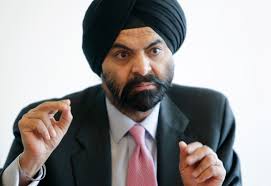News Investigators/ The World Bank has said that the Nigerian government lost a whooping sum of N13.2 trillion in the handling of its foreign exchange subsidy between 2021 1nd 2023
The loss, according to the WB, resulted from government’s two different exchange rates policy in which it maintained an official rate where it controlled the price and a parallel market rate (black market) where the price was decided by supply and demand.
The difference between these rates costs the government a lot of money.
The policy was intended to keep the Naira stable and help certain parts of the economy, but it became a huge expense.
The breakdown of the losses shows that N2 trillion was loss in 2021, N6.2 trillion in 2022, and N5 trillion in 2023.
The Finance Minister, Wale Edun, had recently announced that Nigeria would stop subsidising both fuel and foreign exchange,stating that the policies have been hurting Nigeria’s economy and would no longer continue.
“Fuel and FX subsidies are extinguished,” Mr. Edun had said.
Nigeria had been subsidizing petrol and foreign exchange for many years, spending a lot of money to keep prices low, though the full effects weren’t clear.
In their new report, the World Bank says Nigeria lost N13.2 trillion which could have helped everyone in the country but only helped certain groups. Of this amount, N3.9 trillion was lost from non-oil sector taxes.
The World Bank also pointed out that the government finally stopped the foreign exchange subsidy in February 2024, even though the Central Bank said it would stop it in July 2023.
“Quantifying the fiscal cost, through forgone revenue of multiple exchange rates: Prior to the full FX unification in February 2024, the presence of a parallel FX premium generated enormous fiscal costs, in the form of forgone revenues.”
“This situation emerged because FX revenue inflows—such as oil and customs revenues, as well as a portion of domestic VAT and CIT which are paid in FX—were transferred to the treasury at the official exchange rate.”
“However, due to the significant difference between the official and parallel market rates, the amount of naira-denominated revenue received by the Federation from FX-linked revenues was significantly reduced.”
“The unification of the FX rate has therefore eliminated the forgone revenues that previously benefited certain groups at the expense of the entire nation.”
The report says this affected five main ways the government makes money: oil and gas revenue, import and export duties, VAT, company tax, and money from government-owned companies like NNPC, FAAN, NPA, and NIMASA.
The World Bank explains that between 2021 and 2023, 44.3% of net VAT revenue came from imported goods in foreign currency, and 40% of total company tax was paid in foreign currency.
“The estimated implicit forgone revenues from the FX premium were even larger than the PMS subsidy, underscoring the importance of maintaining a unified FX rate.”
“In 2022, when the cost of the PMS subsidy reached N4.5tn, representing 2.2 per cent of the Gross Domestic Product, the revenues forgone that emerged due to the large parallel rate premium are estimated to have been N6.2tn, representing 3 per cent of GDP.”
“N4.5tn of FX revenue was forgone from gross oil revenues and N1.7tn from the FX revenue forgone from non-oil tax revenues.”
The World Bank advises Nigeria to keep using a single exchange rate to help the economy.
At the report’s launch, Alex Sienart, the World Bank’s main economist for Nigeria, said the government is making more money in the first half of this year mainly because they stopped the foreign exchange subsidy.
He explained that in 2022, the foreign exchange subsidy cost more than the fuel subsidy that was removed in June 2023.
“We are seeing a fiscal consolidation underway with the fiscal deficit shrinking from 6.2 per cent of GDP in the first half of 2023 to 4.4 per cent of GDP in H1, 2024 and that is largely due to expenditure being roughly constant.”
“So this surge in revenue is largely due to the removal of the implicit subsidy which was even larger than the PMS subsidy that we talk about.”
(BusinessDay)


